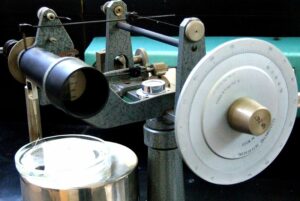Metrology Glossary: Tensiometer
What Is A Tensiometer?
A tensiometer serves as a precision instrument that is used to quantify tension which is the opposing force between two objects. Primarily used in materials science, these devices specialize in gauging the tensile strength of various materials by determining the amount of force a substance can withstand before fracturing. Widely used in engineering and construction settings, tensiometers play an integral role in quality control, assuring that materials possess the requisite resilience to support anticipated loads. Evaluating tensile strength is fundamental for safeguarding structural integrity, certifying that materials meet stringent standards for safety and performance in diverse applications.
What Are Tensiometers Used For?
Tensiometers are used in the measurement of tensile strength across a diverse range of materials such as metals, plastics, and composites. This data is crucial for ensuring that materials possess the necessary durability to withstand anticipated stresses during use. In the realm of quality control, tensiometers play a key role. For example, testing the tensile strength of welds to guarantee their resilience against expected loads. Tensiometers also contribute significantly to certifying materials for safety and performance in various applications. For example, they can be used to validate aircraft components, ensuring they can endure the rigorous stresses associated with flight.








